


If you are a fan of clean dishes, like me, you should know that not all dishwashers have filters. Some dishwashers have filters that need to be cleaned regularly to ensure the best washing results. However, other models have self-cleaning filters that remove any food particles automatically, so you don’t have to worry about cleaning them yourself. So, what’s the deal with dishwashers and filters? Let’s dive in and explore!
Firstly, it’s essential to know where the filter is located in your dishwasher. In most appliances, the filter is located at the bottom of the dishwasher, near the sprayer. It is designed to catch large food particles and prevent them from clogging the sprayer or the drain. Some dishwashers may have more than one filter, but the same principle applies – they help keep your dishes clean.
If your dishwasher has a manual filter, the manufacturer’s manual will tell you how often you should clean it. Usually, it’s recommended to clean the filter once a week or once every two weeks, depending on your dishwasher’s usage. To clean the filter, you need to remove it from the dishwasher and rinse it under warm water to remove any food particles or build-up. If you can’t find the manual or you’re not sure how to remove the filter, a quick Google search with your dishwasher model will likely give you the answers you need.
On the other hand, if your dishwasher has a self-cleaning filter, you don’t have to worry about removing and cleaning it yourself. These filters are designed to break down and remove any food particles during the dishwashing cycle, so the water remains clean and your dishes come out pristine. Unfortunately, not all dishwashers have this feature, especially older models.
To keep your dishwasher running in good condition, it’s important to take care of its filter. Regularly cleaning or using a dishwasher with a self-cleaning filter will help prevent clogs and ensure that your dishes are always clean and sparkling. So, remember to check your dishwasher manual to know what type of filter your dishwasher has and how to take care of it. With the right maintenance, your dishwasher can last for many years and continue to provide you with clean dishes with every load.
The Importance of Dishwasher Filters
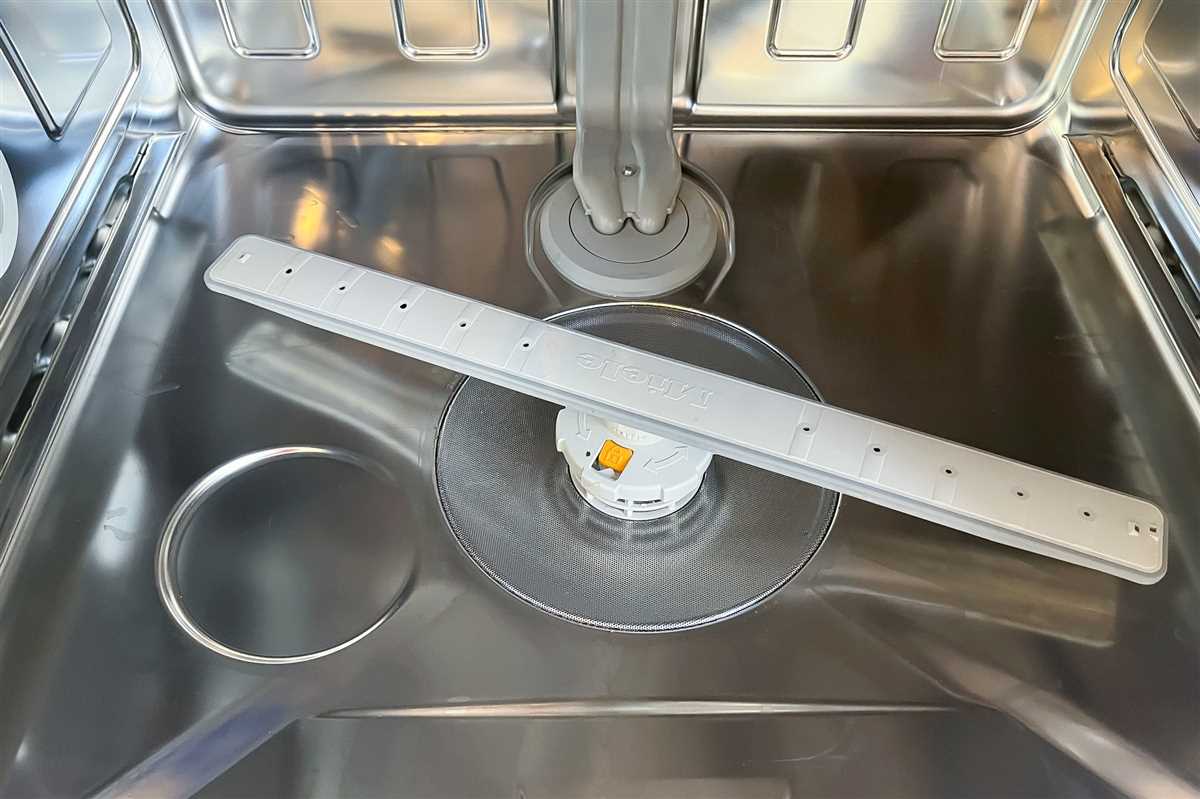
Dishwashers are a convenient and time-saving appliance in any kitchen. They take the hard work out of dishwashing, leaving you with more time to do other things. However, like any appliance, dishwashers can break down and need maintenance. This is where the dishwasher filter comes in.
Many people may not even know that their dishwasher has a filter, let alone how important it is to keep it clean. Unfortunately, the dishwasher filter is often overlooked during regular cleaning. The filter is located in the dishwasher itself and needs to be cleaned regularly to ensure it functions properly.
So, what exactly does a dishwasher filter do? Its main function is to trap food particles and debris from the dirty dishes during the wash cycle. If the filter becomes clogged with built-up residue, it can restrict water flow and prevent the dishwasher from cleaning dishes effectively.
Why is it important to clean the dishwasher filter?
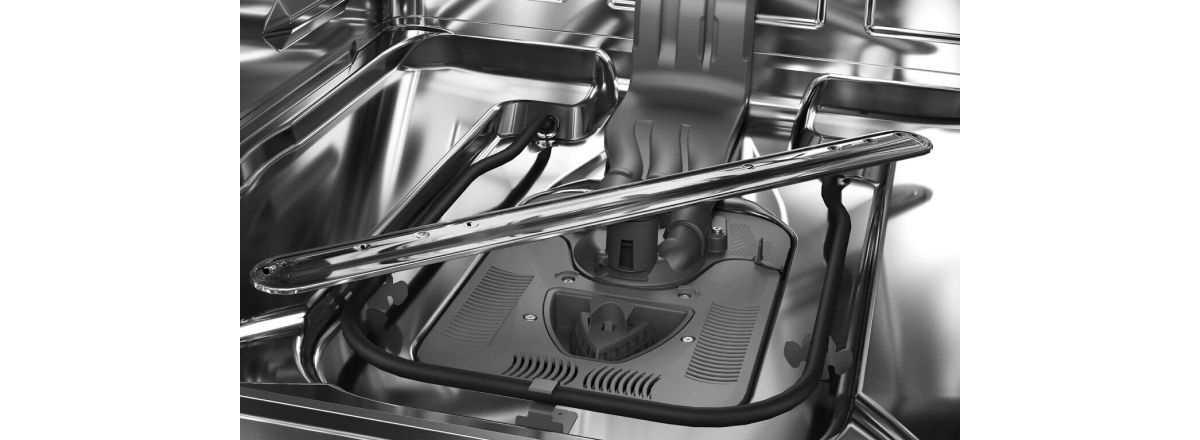
Cleaning the dishwasher filter is important for several reasons:
- Prevents clogs: A clogged filter can cause water to back up and prevent your dishwasher from draining properly.
- Improves cleaning performance: A clean filter allows the dishwasher to effectively remove food particles from dishes, leaving them spotless.
- Extends the lifespan of your dishwasher: Regularly cleaning the filter prevents build-up and ensures the dishwasher runs smoothly for longer.
How to clean the dishwasher filter
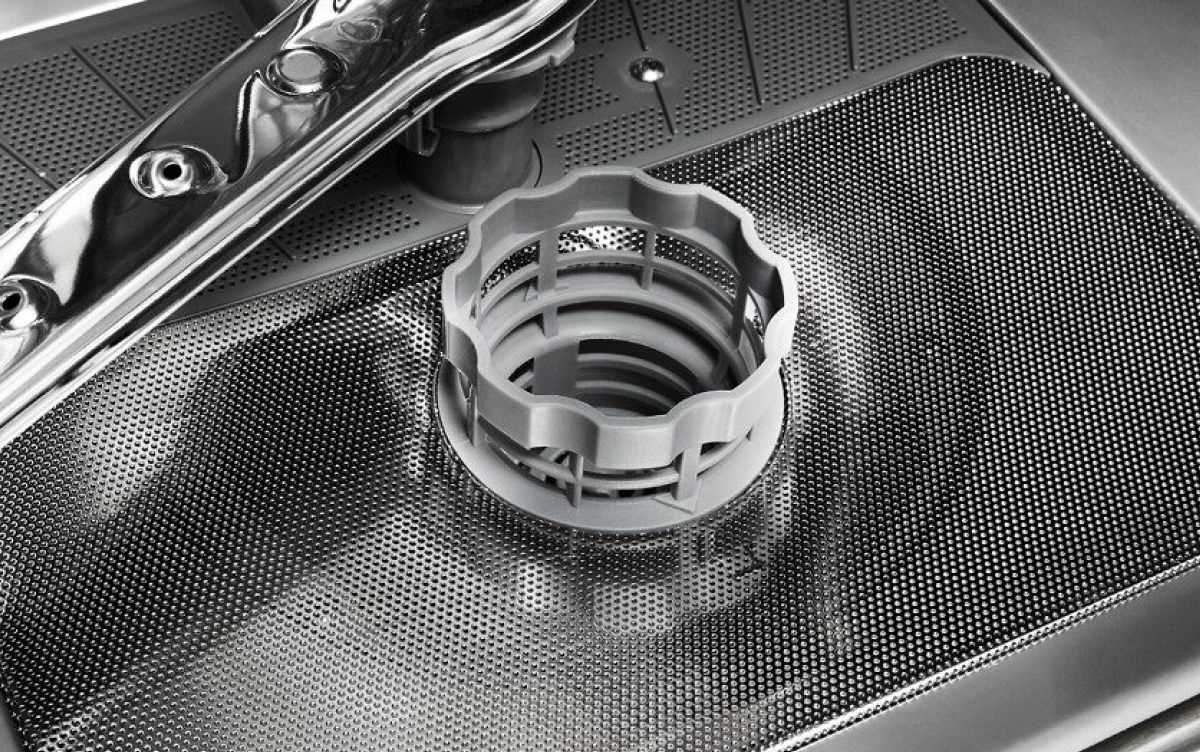
Cleaning the dishwasher filter is a relatively easy task that can be done by following these steps:
- Refer to your dishwasher’s manual to locate the filter and understand how it can be removed.
- If the filter is removable, remove it according to the instructions in the manual.
- Wash the filter under warm water, removing any food particles and debris.
- For a deep cleaning, soak the filter in a mixture of warm water and vinegar for about 15 minutes.
- Use a toothbrush or a small brush to scrub away any stubborn residue.
- Rinse the filter thoroughly and make sure it is completely clean.
- Once the filter is cleaned, place it back in its location in the dishwasher.
Remember to consult your dishwasher’s manual for specific instructions and cleaning tips, as different models may have different filter types and locations.
In conclusion, regularly cleaning the dishwasher filter is an important task that should not be overlooked. It helps prevent clogs, ensures optimal cleaning performance, and extends the lifespan of your dishwasher. Taking just a little time to clean the filter can save you from costly repairs and keep your dishwasher running smoothly for years to come.
Types of Filters in Dishwashers
When it comes to dishwashers, there are different types of filters that serve various purposes. Understanding these filters is important because they play a crucial role in keeping your dishwasher clean and functioning efficiently. Let’s take a closer look at the types of filters commonly found in dishwashers:
1. Self-Cleaning Filters
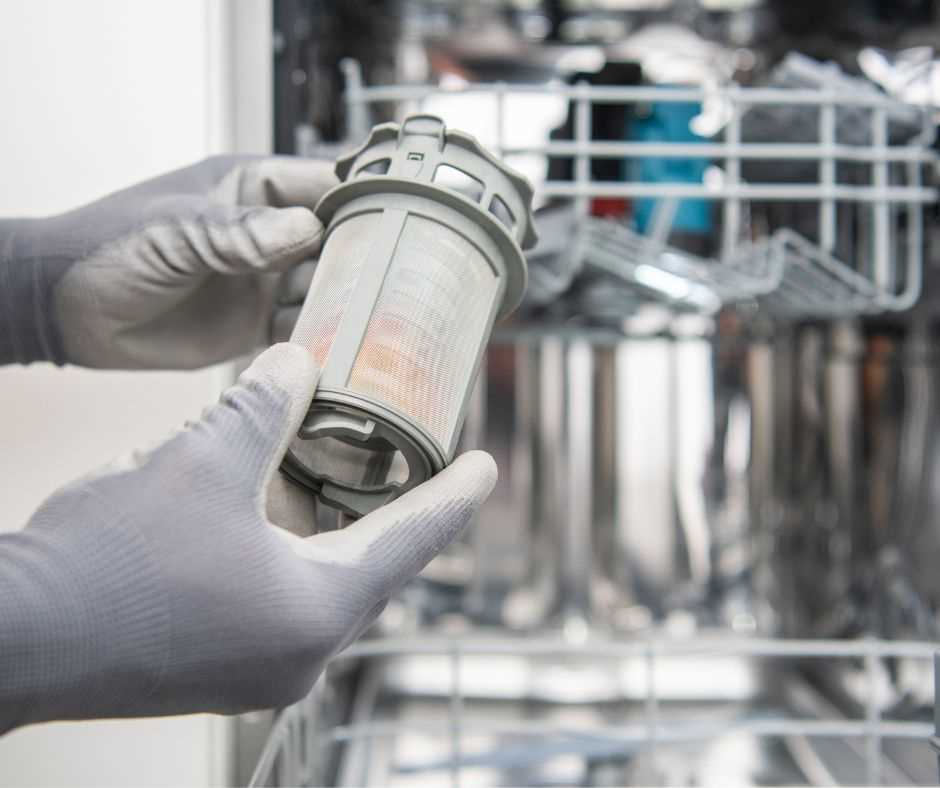
Most modern dishwashers are equipped with self-cleaning filters. These filters are designed to keep the dishwasher clean without requiring you to manually clean them. They work by using a grinder or a chopper to break down food particles into smaller pieces, which are then washed away by hot water during the wash cycle. Self-cleaning filters are efficient and convenient, as they eliminate the need for regular maintenance.
2. Manual Filters
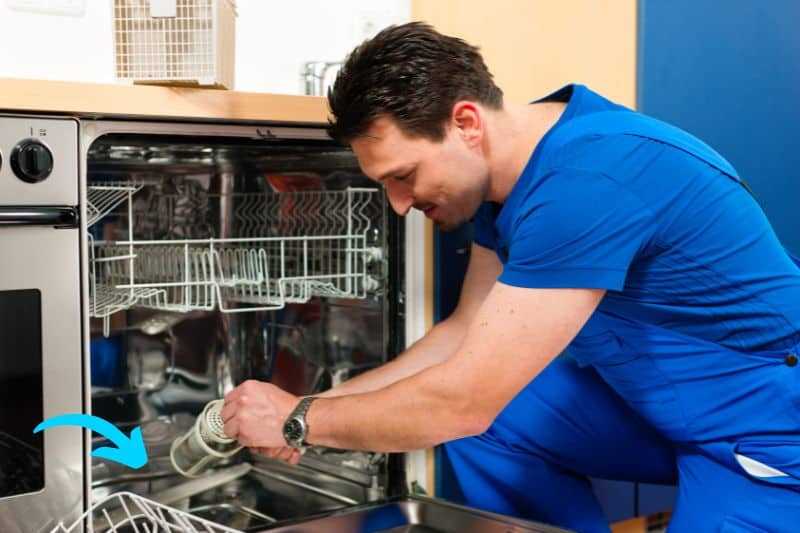
Some older dishwasher models may have manual filters. These filters require regular cleaning to ensure proper performance. Manual filters are typically located at the bottom of the dishwasher and can be easily accessed by removing a few parts. When using a dishwasher with a manual filter, it is important to clean it thoroughly to prevent any clogging or damage to the dishwasher. Refer to the dishwasher’s manual for instructions on how to properly clean the filter.
3. Fine Filters
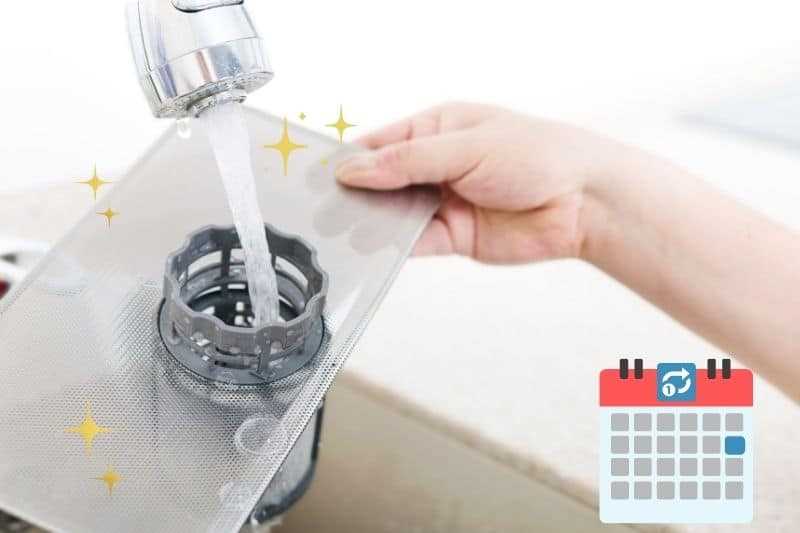
Dishwashers with fine filters have an additional layer of filtration to ensure a thorough cleaning. These filters are designed to capture even the smallest debris that might have escaped the primary filter, such as leftover food particles or fine sediments. Fine filters are usually found in high-end dishwasher models and help keep your dishes pristine and spotless.
4. Baking Soda Filters
Some dishwashers have filters that are infused with baking soda. These filters are designed to help neutralize odors that can occur during the dishwasher’s operation. The baking soda filter helps keep your dishwasher smelling fresh and clean, even after multiple uses.
5. Full-Time Filters
Full-time filters are a popular choice for those who want to maintain a clean dishwasher without any manual intervention. These filters are always active and work continuously during the dishwasher’s operation to filter out food particles and other debris. Full-time filters help keep the dishwasher clean at all times, making it easier for you to load your dishes without the worry of residual food particles.
In conclusion, dishwashers come with different types of filters that serve different purposes. Whether you have a self-cleaning filter, a manual filter, a fine filter, a baking soda filter, or a full-time filter, it’s important to understand how these filters work and how to properly maintain them. By keeping your dishwasher’s filters clean and well-maintained, you can ensure a longer lifespan for your dishwasher and enjoy clean and sparkling dishes every time.
How Dishwasher Filters Work
Dishwashers have filters that help to keep the machine clean and ensure that your dishes come out spotless. Not all dishwashers have filters, but for those that do, understanding how they work is important for proper maintenance and cleaning.
The filters in dishwashers are designed to catch food particles and other debris that are rinsed off of your dishes during a wash cycle. This prevents them from clogging the dishwasher drain and recirculating onto your clean dishes.
Depending on the model, dishwashers can have different types of filters. Some models have a single filter that needs to be cleaned, while others have multiple filters for better efficiency. The most common type of filter in dishwashers is known as a manual-clean filter. As the name suggests, this filter needs to be manually removed and cleaned.
The basic process of how a dishwasher filter works is simple. When you start a wash cycle, the water is sprayed onto your dishes, and the debris is washed off. This dirty water is then transferred to the filter, where it passes through and gets filtered. The clean water will then flow back into the dishwasher and be used for the next cleaning cycle.
Unfortunately, even with a filter, some debris can still accumulate inside the dishwasher. That’s why it’s important to regularly clean the dishwasher and its filter. A good indication that your dishwasher filter needs cleaning is if you notice a white residue on your dishes after they have been cleaned.
To clean the dishwasher filter, you will need to remove it from the machine. The filter is usually located at the bottom of the dishwasher, behind the spray arm. Once removed, it can be soaked in warm, soapy water to remove any stuck-on debris. You can also use a toothbrush or a soft brush to scrub away any remaining gunk. Be sure to rinse the filter thoroughly before putting it back into the dishwasher.
Some newer dishwasher models have a self-cleaning filter. These filters are designed to clean themselves automatically, so you don’t need to remove them for cleaning. However, it’s still important to regularly check the filter and wipe away any residue to ensure optimal performance.
Regular maintenance and cleaning of your dishwasher filters will help keep your dishwasher running smoothly and ensure that your dishes come out sparkling clean. So don’t forget to check and clean your dishwasher filter regularly!
Maintenance and Cleaning of Dishwasher Filters

Filters are a major component of dishwashers and play a crucial role in ensuring that your dishes come out clean. If you’re wondering whether all dishwashers have filters, the answer is yes. But, not all filters are the same and their maintenance and cleaning requirements may vary.
If you want your dishwasher to perform at its best and last longer without any breaks, it is important to keep the filters cleaned. The filters help to remove large food particles, debris, and other contaminants from the water before it is sprayed onto the dishes, preventing them from getting stuck or clogging the sprayer arms.
Cleaning the filters is an easy maintenance step that you can do yourself. For many dishwashers, the filters are located at the bottom of the dishwasher tub. To clean them, simply follow these steps:
- Remove the lower rack from the dishwasher.
- Locate the filters at the bottom of the dishwasher tub.
- Remove the filters by twisting or lifting them out, depending on the design of your dishwasher.
- If there is a large, fine or white filter, it’s likely the main filter. Clean it thoroughly by scrubbing it with a brush or under running water.
- If there are additional filters, such as a mesh or coarse filter, remove them and clean them as well.
- Inspect the filters for any signs of damage or wear. If anything looks broken or worn out, it may need to be replaced.
- Wipe down the area around the filters and the inside of the dishwasher to remove any build-up or debris.
- Once the filters and dishwasher interior are clean, reassemble the filters and place them back into their original position.
It is recommended to clean the filters every 1-2 months or as needed, depending on the frequency of use and the amount of food debris in your dishwasher. Following the manufacturer’s instructions in the dishwasher manual is also a good idea.
If you’re unsure about the location and cleaning process for your dishwasher’s filters, consult the manual or do a quick search online. Unfortunately, not all dishwashers make it easy to access and clean the filters, so be prepared to put in a little extra effort.
Vinegar can also be used to remove any build-up or odors that may be present in the filters. Simply remove the filters and soak them in a solution of equal parts vinegar and water for about 15-20 minutes. Rinse them thoroughly before placing them back in the dishwasher.
By regularly cleaning and maintaining your dishwasher filters, you can ensure that your dishwasher continues to provide you with clean and sparkling dishes for years to come.
Benefits of Having Filters in Dishwashers
Filters are an essential part of any dishwasher as they play a crucial role in ensuring efficient and effective cleaning. Here are some benefits of having filters in your dishwasher:
- Maintenance: Filters help in maintaining the overall performance of your dishwasher by preventing the build-up of dirt, food particles, and other debris. Regular maintenance of these filters can extend the lifespan of your dishwasher.
- Improved Cleaning: Filters trap food particles and prevent them from re-circulating during the wash cycle. This ensures that your dishes come out cleaner and free from any residue.
- Prevents Clogs: Filters prevent larger objects such as bones or pieces of cutlery from entering the dishwasher’s drainage system. This helps prevent clogs and keeps your dishwasher running smoothly.
- Easy to Clean: Most dishwasher filters can be easily removed and cleaned. Simply follow the instructions provided in your dishwasher’s manual to access and clean the filters. This regular cleaning will help maintain the efficiency of your dishwasher.
- Save Time and Money: By having filters in your dishwasher, you can avoid the need for manual pre-rinsing of dishes. Filters can handle the removal of food particles, saving you time and reducing water consumption.
Remember, different dishwasher models may have different types of filters. Some may have self-cleaning filters, while others may require manual cleaning. Refer to your dishwasher’s manual to understand the specific filter type and maintenance requirements.
In conclusion, having filters in your dishwasher is important for maintaining its performance, improving cleaning efficiency, preventing clogs, and saving time and money. Regular cleaning and maintenance of these filters should be a part of your dishwasher care routine.
FAQ
Why do dishwashers have filters?
Dishwashers have filters to trap food particles and debris that can clog the drainage system and affect the dishwasher’s performance.
Do all dishwashers have filters?
Yes, all dishwashers have filters. The types of filters may vary, but they are essential for keeping the dishwasher clean and maintaining its efficiency.
How often should I clean my dishwasher filter?
The frequency of cleaning your dishwasher filter depends on the manufacturer’s recommendation. However, it is generally recommended to clean the filter every 2 to 3 months to prevent build-up and ensure optimal performance.
What happens if I don’t clean my dishwasher filter?
If you don’t clean your dishwasher filter regularly, it can become clogged with food particles and debris. This can lead to poor cleaning results, bad odors, and even damage to the dishwasher.
How do I clean my dishwasher filter?
To clean your dishwasher filter, you need to remove it from the dishwasher and rinse it under running water. Use a brush or toothbrush to scrub away any stubborn residue. Then, simply place the filter back in the dishwasher.
Can I clean my dishwasher filter in the dishwasher itself?
Yes, some dishwasher filters are designed to be cleaned in the dishwasher. However, it is best to refer to the manufacturer’s instructions for the specific model to ensure proper cleaning and maintenance.











